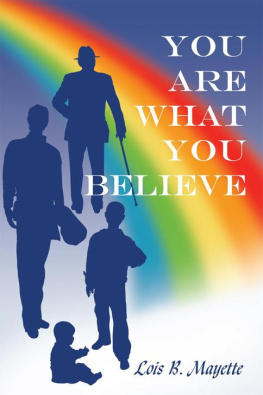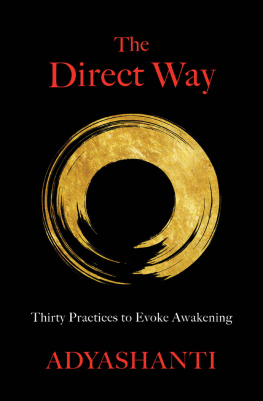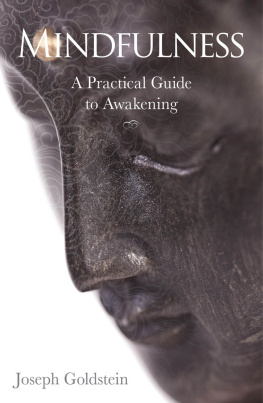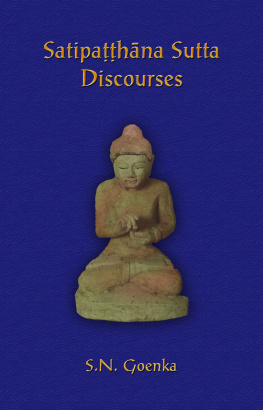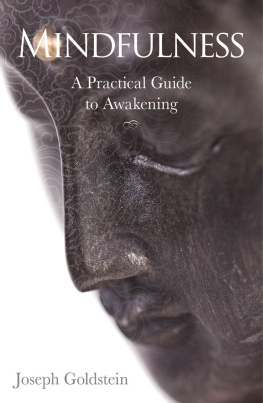Sathyodaya
Truth Awakening
by Walpola Rahula
This is an English translation of Sathyodaya,
originally published in Sinhala.
Translated into English and compiled by
Niranjan Selvadurai
"Asre sramatino
sre csradassino
te sr a ndhigacchanti
micchsankappagocar."
In the unessential we see the essential, In the essential we see the unessential, anyone who entertains such wrong thoughts will never realise the truth.
Sraca srato atv
asraca asrato
te sr a adhigacchanti
sammsankappagocar.
What is essential we regard as essential, what is unessential we regard as unessential, anyone who entertains such right thoughts will realise the truth.
Dhammapada (Verses 11&12)
Sathyodaya
Truth Awakening
A series of articles teaching Buddhists how to think
by Venerable Walpola Rahula
Vice-Chancellor - Vidyodaya University (1966-69)
Chancellor - University of Kelaniya (1984-1997)
Walpola Rahula Foundation Trust (WRFT)
1294/04/A (126)
Buddhist Institute Avenue
Kubukgahaduwa
Sri Jayawardhanapura Kotte
Sri Lanka.
Web: https://www.walpolarahulatrust.org
Tel: +94112866196
Sathyodaya
Copyright Walpola Rahula Foundation Trust 2019
Translated into English by Niranjan Selvadurai
ISBN :978-955-650-004-2
Published by: Walpola Rahula Foundation Trust (WRFT)
First published in Sinhala in 1992
Cover design : Lakshan Rajapaksha
Layout : Chandima Peiris
Printing : Graphicare
No: 136, Koswatta Road, Kalapaluwawa, Rajagiriya. 
Introduction
This booklet titled Truth Awakening is a translation of Sathyodaya and may be introduced as the key to free thinking. By reading this book, we may acquire the necessary skill and training to think independently.
Free thinking is not an ability gained easily through habit. Proper direction and guidance is required to develop this skill. Though the physical body can be easily trained to perform a task, the same cannot be said about training the mind. Progressively cultivating human understanding and judgement through reasoning is a challenging task.
When considering the history of free thinking, the teaching in Klma Sutta takes pride of place.
This Sutta instructs us to not to accept anything simply because it is based on tradition, or because it is stated in the religious scriptures, or because it was said by your teacher; accept something only if you are convinced that it is wholesome, true and right. While Klma Sutta provides the principle based platform for free thinking within Buddhist teaching, Sathyodaya teaches the Sri Lankan society how to put this into practice.
The original Sinhala version of this book was written during the period 1933-34 or about 85 years ago. Many false interpretations of the Buddhas teaching as well as using Buddhism for personal gain and classifying people according to their birth by the Buddhist clergy themselves, were pointed out in this book. However, the question now is whether the society has advanced beyond the misrepresentations, and falsehoods to a more progressive one based Buddhas teachings as clearly articulated 85 years ago by Venerable Rahula.
We live in a society where people ask for everything they want by making offerings to the Bodhi tree, the symbolic setting where Siddhartha Gautama let go of all attachments. It is ironic that today, we make offerings (Bodhi Puja) and an endless plethora of large-scale offerings under the guise of many names such as Aba-thel Puja 4, offerings to mother Goddess, offerings of flowers and fruits in such huge quantities that they overflow from the alters they are kept on, seeking favours and benefits and reinforcing their attachments. This emphasizes an increase in ignorance, greed, and fear in our society, signaling its further decline since the 1930s; which is when Sathyodaya was first compiled.
The decline in social values and norms, have an adverse impact across all facets of society. For example, a person with very low spiritual understanding and practice, and one who does not or is not able to think rationally and with objectivity cannot be expected to make ethical, socially responsible political decisions. A society devoid of ethical and righteous conduct will be a haven for corrupt politicians. In such a society, a gullible voter blinded by a false sense of patriotism and religious fervour can easily be manipulated by corrupt, self-serving politicians.
Further, if the society is averse to logical reasoning, and attempts to pass examinations, acquire business gains and achieve success by making dubious offerings rather than through selfeffort; it will create a thriving market for unscrupulous practices. The recent influx of dubious yogis, soothsayers and other traders who appeal to the fears of individuals, and who claim that they can deliver success for exorbitant fees, confirms this position. Molding a Buddhist who is skillful in logical reasoning and heeds the teaching of Buddha is not only a boon to the religion, but also a benefit to the whole society. It would act as a deterrent against unscrupulous individuals from further oppressing and deceiving poor citizens.
Sathyodaya also has a historical significance for the role it played during the freedom struggle against British colonialism. The leaders of the Indian national campaign for freedom wished to educate the masses on the need to stand up against prejudice and injustice. They coached their people to strike a middle ground by even appreciating and acknowledging good qualities of the Colonialists. By this approach they won the support of the fair minded Britishers for their struggle.
More importantly, unhealthy and backward aspects pertaining to race, gender and culture were critically scrutinized by the Indian leaders of the freedom struggle. Rectifying the inequities of the status quo became part and parcel of the freedom struggle. Accordingly, many negative aspects deep rooted in the Indian society such as the caste system, customs relating to child marriages, subjugation of women in society and religious biases, were confronted as part of the campaign. Thus, the Indian freedom struggle was elevated to one of nation-wide society upliftment than a mere campaign to oust colonial rulers. Some of the original aims are still to be fulfilled, but India persists with her social reform agenda even today.
A similar struggle was not apparent in Sri Lanka in her campaign for freedom. Focus was on transferring power from the British to a local group, without any concerted effort to reform the inequities in the society. Due to this failing, Sri Lanka faces setbacks even today which is not as evident as in India. Sri Lanka appears to have developed a psyche that continually seeks an external foe or enemy to lock horns with. There is a lack of will for inward appraisal of short comings in society that can lead to positive internal reform.
Sathyodaya written by Venerable Walpole Rahula appears to be the only attempt to create a fruitful dialog for internal social transformation in Sri Lanka during the period leading up to independence. Venerable Rahula moved within the community and worked among the outcastes and the less fortunate in his effort to spread this message.
Truth Awakening (Sathyodaya) invited the Buddhist society in Sri Lanka to reflect inwardly and right their own shortcomings and move forward as a Nation rather than waiting in readiness to fight western conspiracies, Muslim incursions and Tamil enemies.
A guide to practice Sathyodaya
According to Buddha's teaching, any mediation done without compassion and loving kindness will not bring forth wholesome results. Hence the Buddhist focus should be on winning without creating a loser. Any victory gained by producing a loser or an accused will be incomplete and temporary. This counsel should be clearly borne in mind when reading Sathyodaya.


